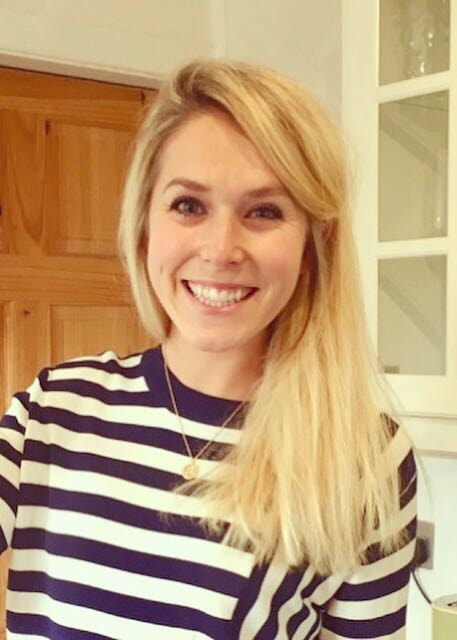|
Dr Tom Cromarty Editor Interests: Paediatric Emergency Medicine, Medical Engagement and Leadership, Simulation, Quality Improvement, Research Twitter: @Tomcromarty |
Welsh Research and Education Network
WREN BlogHot topics in research and medical education, in Wales and beyond
Dr Celyn Kenny Editor Interests: Neonates, Neurodevelopment, Sepsis, Media and Broadcasting Twitter: @Celynkenny |
|
Mike Bailey IT Director, Cardiff and Vale University Health Board  Cardiff and Vale have recently purchased the Patients Know Best patient portal (PKB). PKB is licensed such that any patient of Cardiff and Vale UHB secondary and tertiary services can use it. Primary care is licensed separately, and that cost is under consideration. Mike Bailey: PKB is presented as a website, accessible from any patient devices that feature one of the common internet browsers (PC, laptop, tablet, phone) and is responsive, even where there is a low signal strength. PKB addresses a number of our strategic priorities. We are committed to “Information for You” and as such, PKB will provide patients with access to as much of their clinical data as possible. This will include (past and current) diagnosis, meds, care plans, live results, appointments, letters, images, reports. This should mean that patients will genuinely want to use PKB and positively support patient sign-up rates. There are also a number of operational gain that PKB will facilitate: · Empower the Person. Through various functionality, including online care plans that can be shared with the patient’s care network, support the patients in taking an increased ownership and role in their care. · Facilitate significant elements of service redesign. Including community-based services. Self-reporting, for instance, will enable a significant reduction in outpatient attendance. The capacity freed up in outpatients can be directed to further improvements such as early, supported discharge, with an open ticket back to the ward if becomes necessary. · Facilitate operational savings (time/resource/cost). Very similar activity within Sussex & Surrey IBD process, reduced priority admission waiting time from 6 weeks to 1 week. Reduced admissions (average 5 day stay) by 90% and reduced surgery by 80%. Cheaper medications were also utilised as condition did not reach the same level of severity. · Home First. In addition to early supported discharge, PKB will facilitate the use of online questions and telephone/video conferencing to reduce the need for patients to attend site. · Outcomes that matter to people. Trials within CAV Audiology have demonstrated that when patients are able to complete pre-clinic questionnaires at home, in their own time, the response are much more meaningful and hence enable improved focus on the required care and support. By facilitating a fully informed consent, patients are able to fully understand post treatment impact and actively make a decision on the pathway that suits their needs. This significantly reduced DNAs at the outset of treatment and at the latter stages, when patients fully realise the pending impact on an impending procedure. · Reducing health inequalities. ENT and Audiology have demonstrated that the time saved via unnecessary appointments and improved processes has allowed specialist nurses to target those, often elderly and isolated patients, which have disengaged from their services. PKB also enables patients to delegate access to their records within PKB to their circle of care, thus enabling increased support, through better informed carers - who can see appointments, care plans, letters, meds, help to self-report etc. · Compliance. ENT and Audiology have confirmed that issuing compliance related questionnaires and surveys via PKB has resulted in a significantly higher return rate. · Prehabilitation. PKB can automatically receive and display data from smartwatches and related apps, in order to, with the patients’ permission, track exercise, diet and sleep, as part of prehabilitation programme or just general wellbeing. · Provide cashable savings (letters). Letters to patients will be accessible within PKB, rather than via traditional postage. This is much cheaper than current methods. Even if a patient does not open a letter, it can be rerouted to an outsourced provider, which will send a paper letter cheaper than can be produced internally within CAV. There are many other benefits, specific to each specialty. Initial rollouts will include Gastro, ENT and Audiology. ENT and Audiology already have PKB but, now that we have purchased a full license, we will now be integrating PKB with UHB and NWIS systems to full enable the above benefits. Whilst we await the completion of the integration work, we are also launching PKB for the national Talipes service. This will launch during May 2019, before integration is available but will provide a significant improvement over the current paper-based data collection process Aurey Tong: Whilst we await the completion of the integration work, we are also developing PKB for the Cardiff and Vale Talipes service. This is for parents whose children have congenital talipes equinovarus. The aim is to empower parents via information and support. They will have an electronic version of the talipes passport, a library of resources including top tips, and the opportunity to support each other.
0 Comments
Leave a Reply. |
Editors
Dr Annabel Greenwood Categories
All
|





 RSS Feed
RSS Feed
